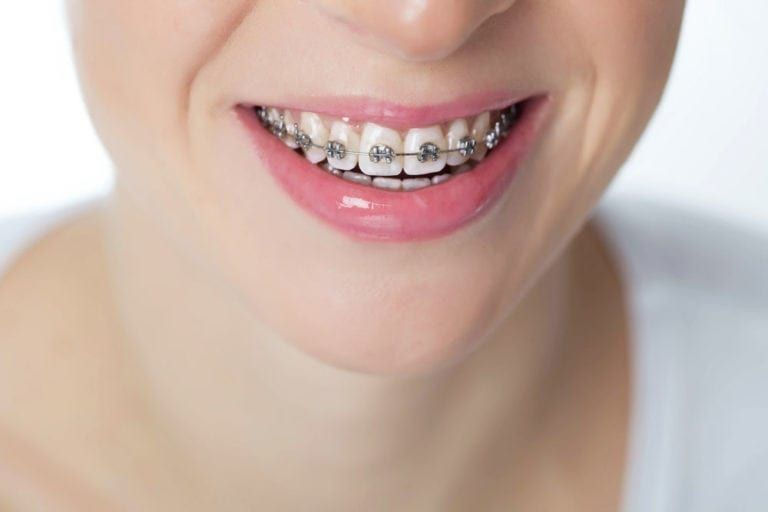Early Signs of Infection After Dental Implants: What to Watch For
- dclinicdubai
- Jun 17, 2025
- 3 min read
Dental implants offer an excellent solution for replacing missing teeth, restoring both function and appearance. However, like any surgical procedure, they carry a risk of complications, including infection. Experiencing a Dental Implant Infection in Dubai can lead to discomfort and even implant failure if not identified early. Recognizing the early signs of infection after dental implants is essential to ensuring timely treatment and preserving your oral health.

Understanding Dental Implant Infection in Dubai:
Dental implant infection occurs when bacteria invade the tissues surrounding the implant, causing inflammation and potentially damaging the bone and gums. In Dubai, where dental tourism and advanced implantology are prevalent, awareness of infection risks is critical for patients to achieve the best outcomes. Early infections typically manifest within the first few weeks after surgery but can also develop months later.
Common Early Symptoms to Watch For:
Knowing what symptoms might indicate a dental implant infection helps patients seek prompt care. Look out for:
Redness and swelling around the implant site
Persistent pain that worsens instead of improving
Gum tenderness or bleeding during brushing or flossing
Unusual discharge or pus from the surgical area
Bad breath or a foul taste in the mouth
These symptoms are warning signs that should not be ignored.
When Normal Healing Turns Into Infection:
After implant surgery, some discomfort and mild swelling are expected. However, infection is suspected when:
Pain intensifies after initial improvement
Swelling persists beyond a week or worsens
Gum tissues feel hot or unusually sensitive
You notice increasing redness or darkening of the gums
Any discharge or bleeding occurs without trauma
Distinguishing normal healing from infection ensures that issues are addressed quickly.
Risk Factors Increasing Infection Likelihood:
Certain factors increase the chances of dental implant infection, especially in urban environments like Dubai:
Poor oral hygiene allowing bacterial growth
Smoking, which reduces blood flow and delays healing
Uncontrolled diabetes or other chronic illnesses
Previous history of periodontal disease
Inadequate surgical technique or contamination
Use of certain medications that affect immune response
Being aware of these risks can help patients take extra precautions.
Preventive Steps to Reduce Infection Risk:
Preventing dental implant infection starts before surgery and continues during recovery. Key preventive measures include:
Thorough pre-surgical dental and medical evaluation
Strict adherence to oral hygiene routines post-surgery
Avoiding smoking and alcohol during the healing period
Taking prescribed antibiotics or antimicrobial rinses as directed
Following your dentist’s instructions carefully for diet and care
Scheduling regular follow-up appointments for monitoring
These steps support successful implant integration and healing.
Importance of Early Diagnosis and Treatment:
Prompt recognition and treatment of infection can save your implant and avoid further complications. Dentists typically:
Conduct clinical exams and imaging to assess infection extent
Perform professional cleaning and irrigation around the implant
Prescribe antibiotics to control bacterial growth
Recommend surgical intervention if necessary to remove infected tissue
Monitor healing closely through follow-up visits
Early intervention is crucial for favorable outcomes.
Long-Term Effects of Untreated Infection:
Ignoring early signs of dental implant infection can lead to serious consequences such as:
Loss of supporting bone around the implant (peri-implantitis)
Implant mobility or failure requiring removal
Spread of infection to adjacent teeth or tissues
Increased treatment costs and extended recovery time
Potential impact on overall health if infection spreads systemically
Timely care prevents these risks and protects your smile.
Lifestyle Changes to Support Healing and Prevention:
Making healthy lifestyle choices enhances recovery and reduces infection risks. Consider:
Maintaining excellent oral hygiene with gentle brushing and flossing
Eating a balanced diet rich in vitamins and minerals
Staying hydrated and avoiding sugary or acidic foods
Managing stress and getting adequate sleep for immune support
Avoiding habits like smoking or chewing tobacco
Regular dental visits for professional cleaning and check-ups
These habits contribute to long-term implant success.
Final Thoughts:
Recognizing the early signs of a Dental Implant Infection in Dubai is essential for protecting your investment and maintaining oral health. While some discomfort is normal after implant surgery, persistent pain, swelling, redness, or discharge are red flags that require immediate attention. By understanding the symptoms, risk factors, and preventive measures, you can reduce the likelihood of infection and ensure a smoother recovery. Always follow your dental professional’s advice closely and schedule regular check-ups to monitor your implant health. Early action not only preserves your dental implant but also helps you enjoy a confident and healthy smile for years to come.


Comments